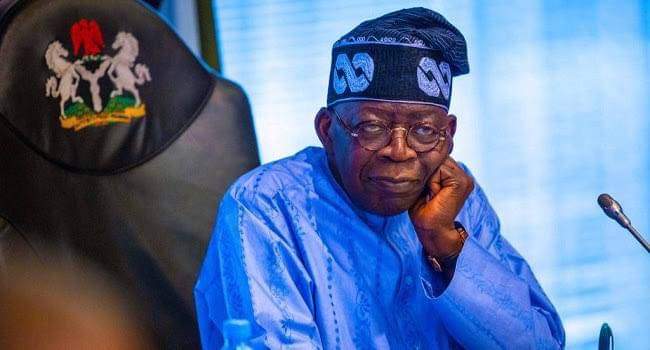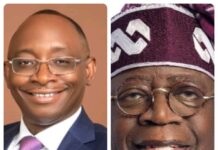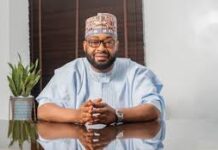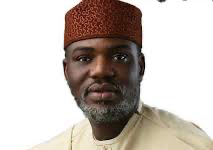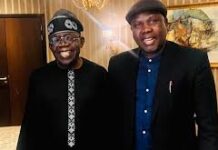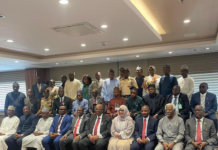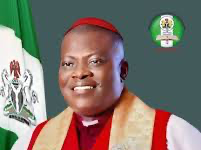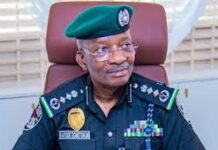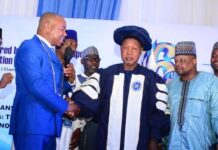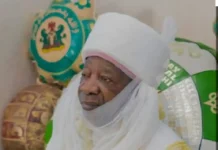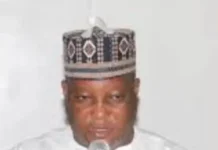The Need to Reposition June 12
By Monday Philips Ekpe
The change of Democracy Day from May 29 is still not an accomplished task, writes
Nigeria’s attempts to review or renew it’s identity in various components of nation hood are sure signs of life of some sort, if not outright dynamism.
Like in the lives of individuals, questions come up periodically for which answers are sought, not just solutions of any kind but ones that fit, that satisfy different shades of aspirations and expectations. In reversing our national anthem, for instance, President Bola Tinubu seemed to have hoped that some nagging holes in the country’s patriotism would be filled.
The numerous contestations that have followed that decision have also flowed mainly from a feeling among majority of the people that injury had been dealt a critical symbol of our national image. It won’t be surprising if another government enters and reverts to “Arise O Compatriots”.
No matter what anyone feels about the anthem drama and the role of the National Assembly in it, President Tinubu isn’t alone in effecting such shifts. He has a recent precedence in the art of using state powers to redefine national observances.
In dropping May 29 for June 12 as Democracy Day in June 2018, the statement from President Muhammadu Buhari’s presidency was emphatic: “For the past 18 years, Nigerians have been celebrating May 29th, as Democracy Day. That was the date when for the second time in our history, an elected civilian administration took over from a military government.
“The first time this happened was on October 21st, 1979. But in the view of Nigerians, as shared by this Administration, June 12th, 1993 was far more symbolic of democracy in the Nigerian context than May 29th or even October 1st. June 12th, 1993 was the day when Nigerians in millions expressed their democratic will in what was undisputedly the freest, fairest and most peaceful elections since our independence.
The fact that the outcome of that election was not upheld by the then military government does not distract from the democratic credentials of that process.”
With that preamble, June 12 was pronounced as the new date.The late Chief MoshoodAbiola who until that moment was widely referred to as the “presumed” winner of the 1993 presidential election, was officially announced and gazetted as the actual winner and conferred with the nation’s highest honour of Grand Commander of the Federal Republic, GCFR, among other symbolic gestures.
While most Nigerians praised Buhari for his efforts to right the wrongs of that portion of the country’s history, those who had their reservations had cause to query his motive.
The battle for his second term in office was then underway and he needed the favours of voters especially from the south west who had become the self-appointed custodians of June 12 in the passage of time. A case of exploiting a sectional agitation to his personal advantage.
Whatever the values of that notion, the move worked well for Buhari. Did June 12 deserve what was bestowed on it? A resounding yes, in my view. But,at least one downside of that action shouldn’t be ignored.
Here’s why. If the holiday declaration had taken place 30 years ago, this observation or intervention wouldn’t have been necessary.
One significant take away from the political environment which produced that “fairest and freest” electoral feat 31 years back is the ability of the people, diverse in many ways, to rise and act with unity of purpose.
Our regular fault-lines of ethnicity, religion and region weren’t this entrenched and advertised.In fact, the concern for rotational presidency was a direct fallout from the manipulation and mismanagement by the political elite with the active involvement of the mass media.
Read Also:
How could we miss such a sterling opportunity to institutionalise democracy? Chief Abiola (God rest his soul), obviously didn’t win that poll because of his ethnic and regional credentials.
The spread of his votes was unmistakable and unprecedented, adding strength to a number of factors which include his own personality and the general clamour for a return to civilian rule.
These two grounds are enough pillars upon which to rebuild Nigeria politically. Get politicians who are acceptable to the populace into the fray and demonstrate why military adventurism in politics should be permanently confined to the morgue. Simple.
Unfortunately, the country has over time drifted deeper into the embrace of centrifugal forces. The younger generation of citizens,in particular,may well see June 12 as the day a Yoruba man was denied his chance of becoming president.
It would be sad indeed not to figure out the potential damage that would ultimately cause an already fractured nation. The way to go is to seize the day and other means to consciously educate Nigerians about the true substance of that date.
Tinubu’s second address to mark Democracy Day contains ingredients that could be played up frequently via different media to make the people identify with and truly own it. It reads in part: “Despite the lethal might of the military government, what appeared to be high and unyielding walls of dictatorship came tumbling down.
The dismal fortress exists no longer.The power of an idea, the power of the people proved more potent than all the guns and munitions, and the threats of the strongmen.
The nation exited the yoke of military rule in 1999 to become the most populous democracy on African soil, the beacon of democratic self-determination for the black race and one of the largest democracies in the world….
“A nation can have elections without being democratic. But a nation cannot be truly democratic without holding elections.That we have established a tradition of holding transparent, open, and fair elections gives credence to our democratic bearing.
That we have experienced peaceful transitions of government affirms our democratic temperament.” The last bit of his statement must be taken with a bag of salt, though.
True, change of baton has been achieved a number of times since 1999 but that has also recorded varying degrees of discontentment, disillusionment and despair. And the last one is certainly not the purest of the lot. Meaning, if the country has registered any electoral integrity worth eulogising, it is neither consistent nor progressive.
The task of leading the charge to save this current representative governance from further diminution in the estimation of Nigerians rests squarely on Tinubu and his team.
To begin with, it’s crucial to realise that platitudes about democracy being the best form of government or its worst practice being better than the best of military administrations mean nothing to the people whose fundamental rights to security and reasonable welfare are in perpetual jeopardy.
What the Presidential Candidate of the leading opposition party, the People’s Democratic Party (PDP), in the 2023 general election, Wazirin Adamawa Atiku Abubakar,himself a veteran of Nigeria’s democratic struggles, said about the Day is apt.
His words: “I must congratulate the political class for having embraced the rectitude of nurturing a democracy, as well as the civil society.…But our democracy is not yet virile if it continually fails to deliver the promises of prosperity and liberty to the people.
”Many people do doubt the readiness of the present crop of politicians to nurture and deepen this mode of government for which huge sacrifices have been made.
The desirability of June 12 to claim the loftiest spot in our electoral sojourn so far is clearly not in doubt. But the sustenance of that position mustn’t be taken for granted either.
If proper foundations are not laid soon, its very rationale will be questioned and even undermined by future generations which may be drowned in the negative tendencies unchecked at the moment.
Ekpe, PhD, is a member of THISDAY Editorial Board.

